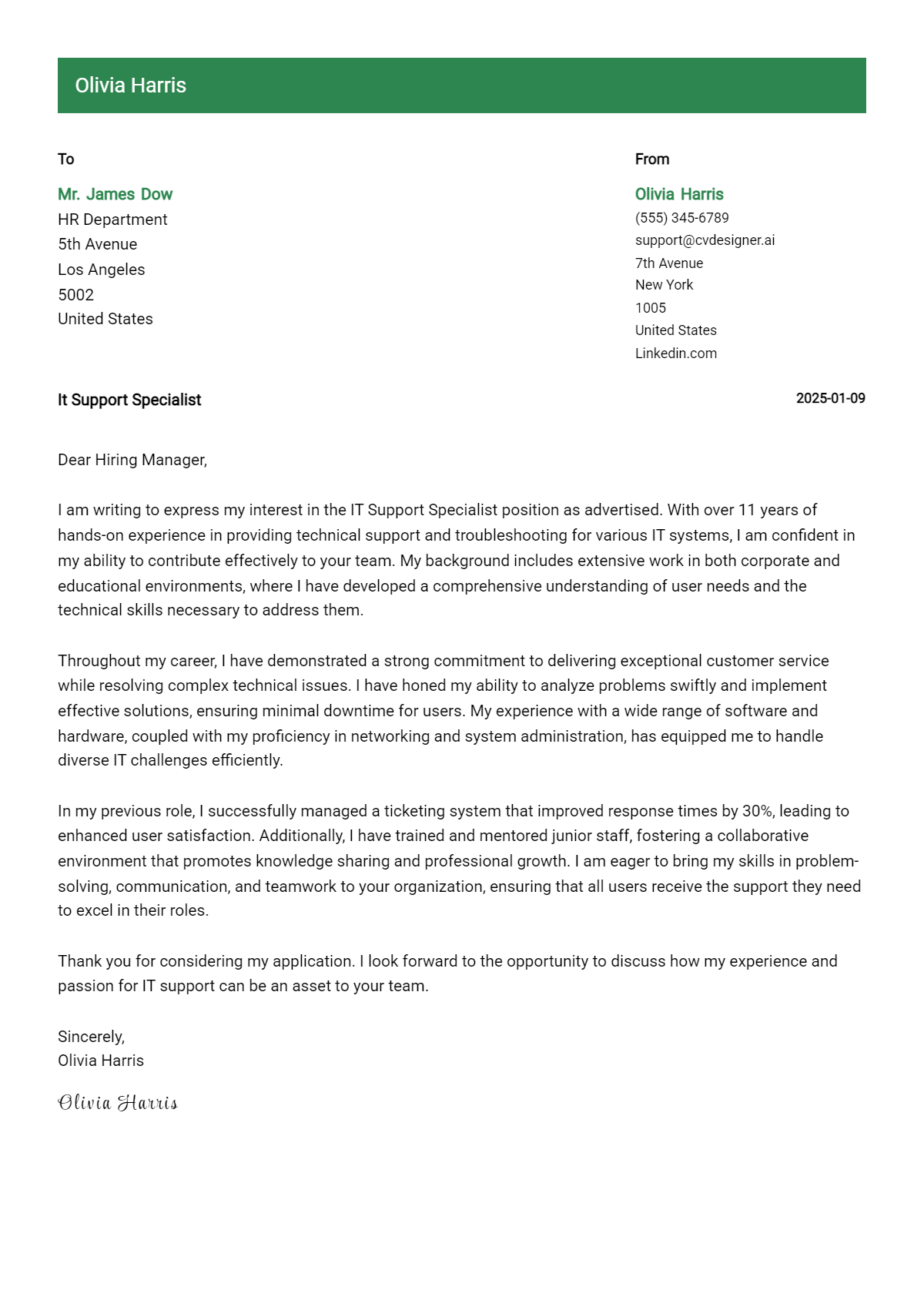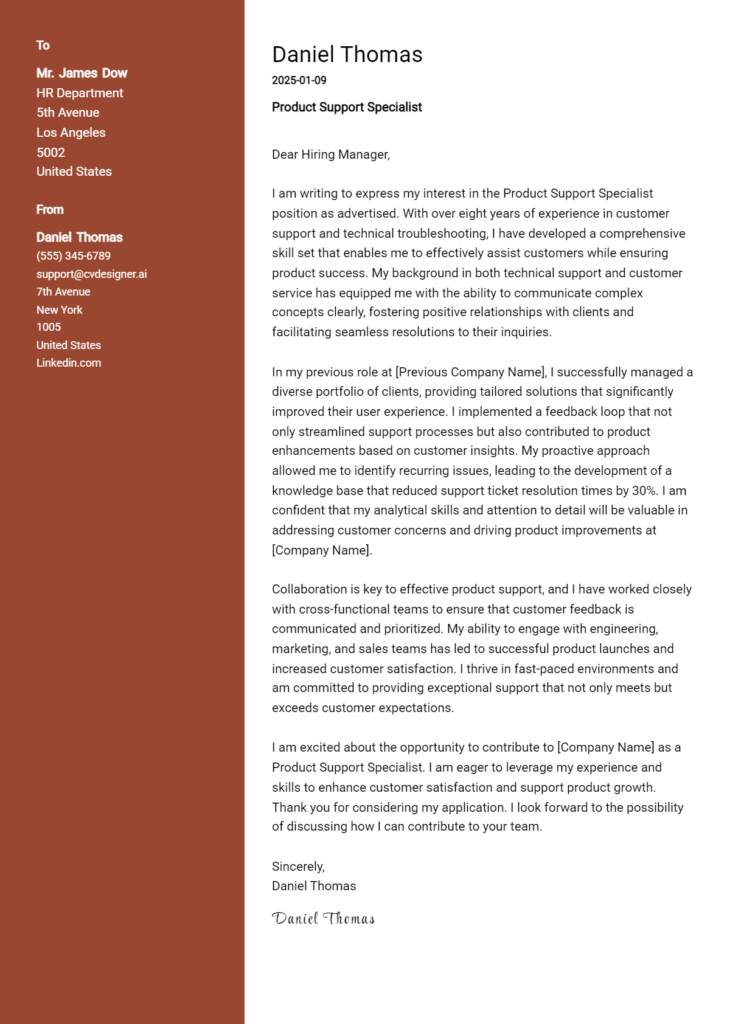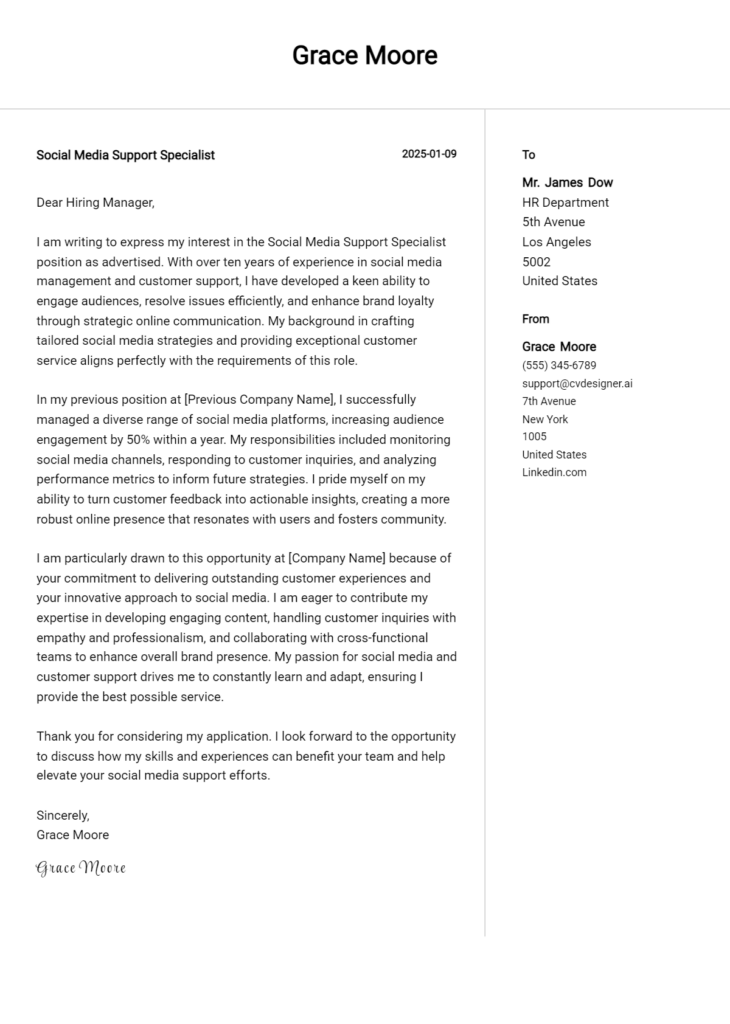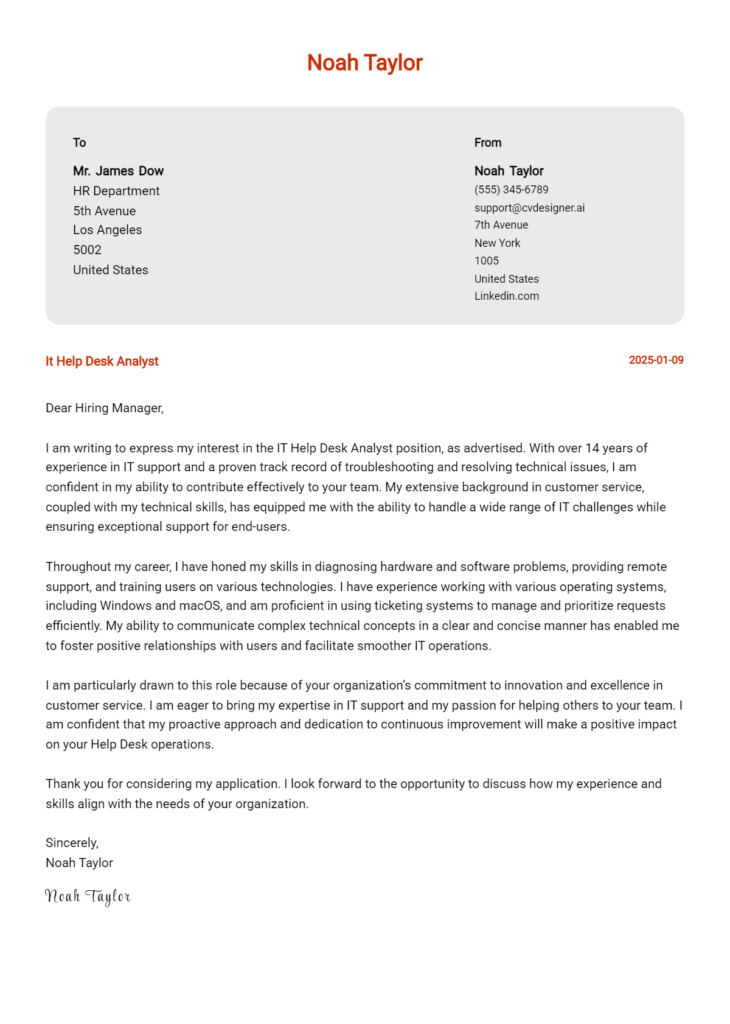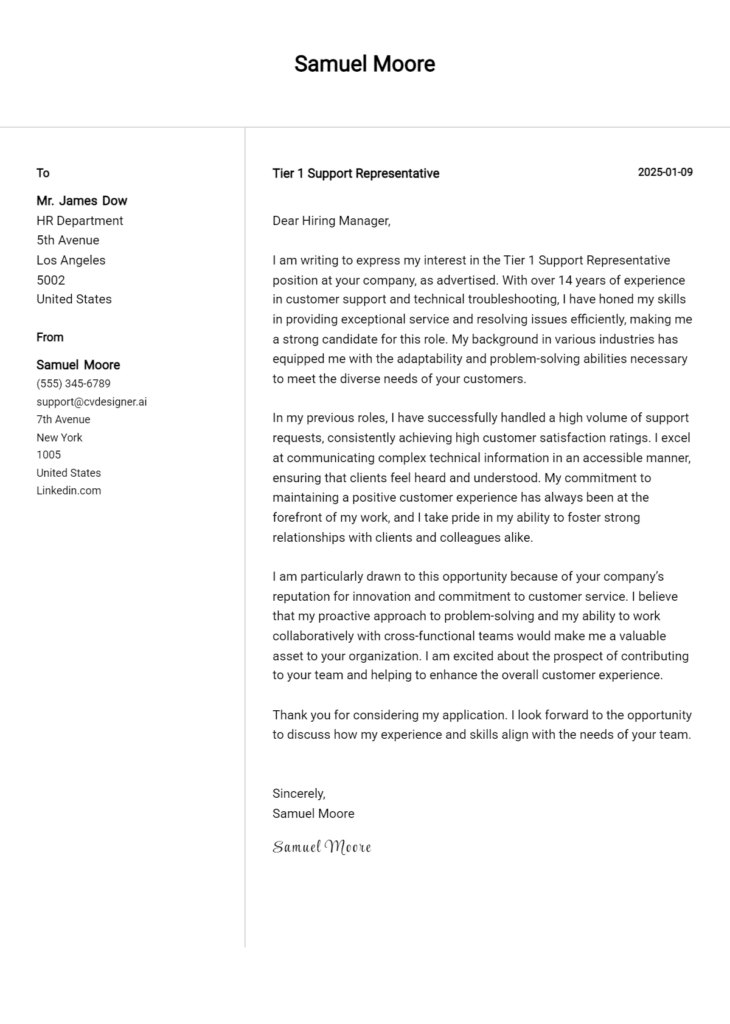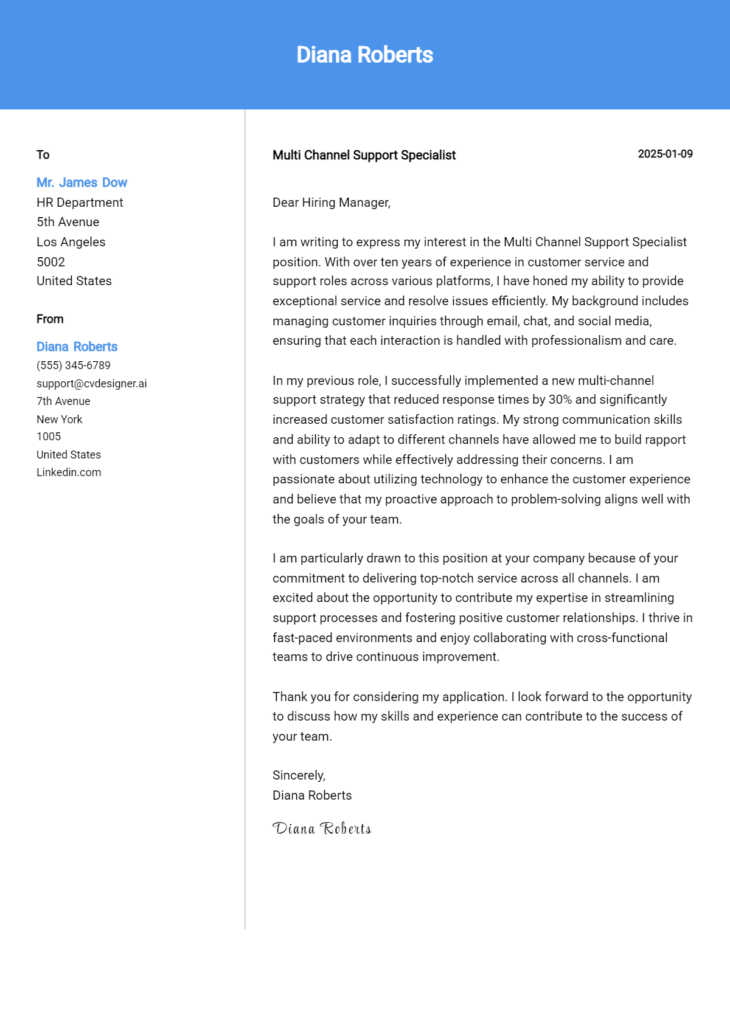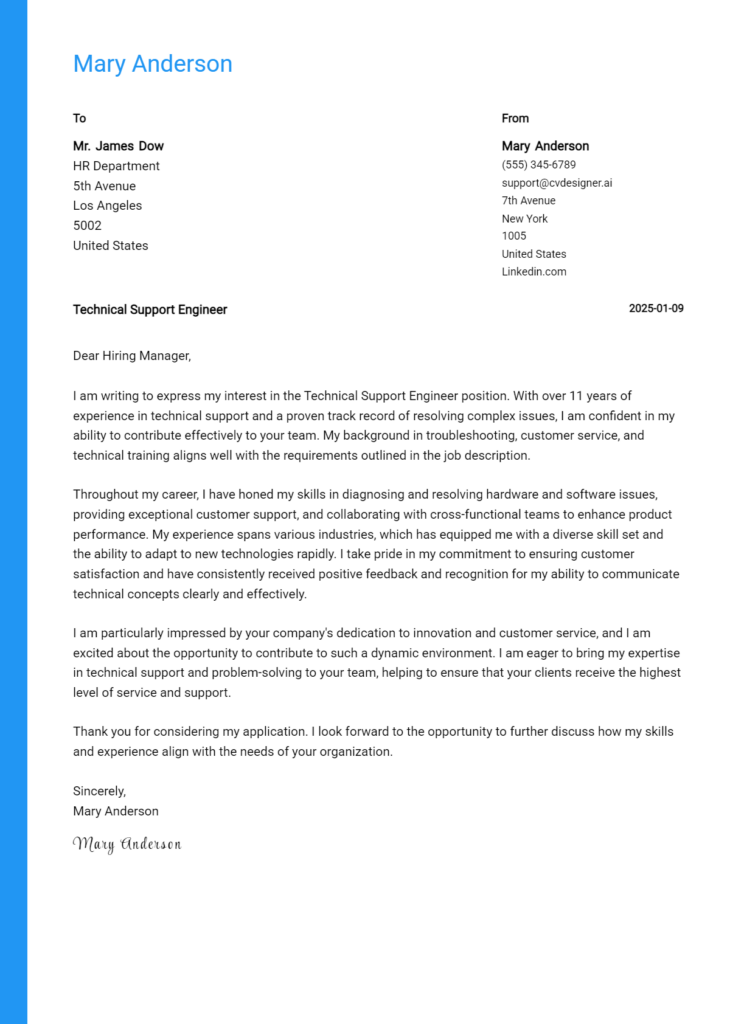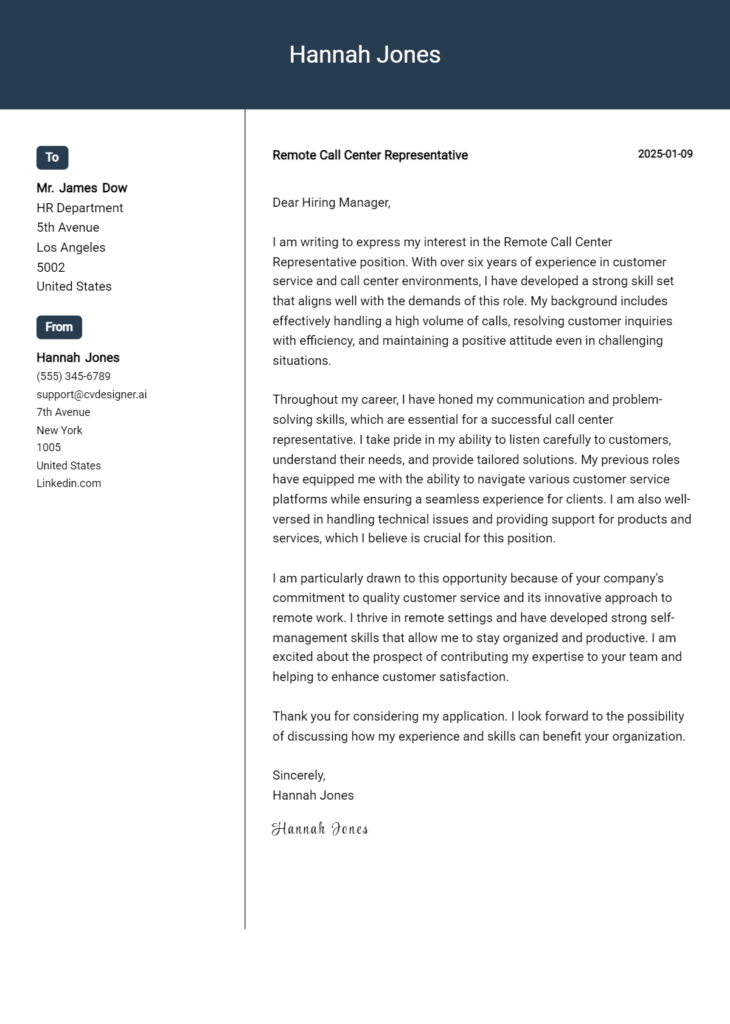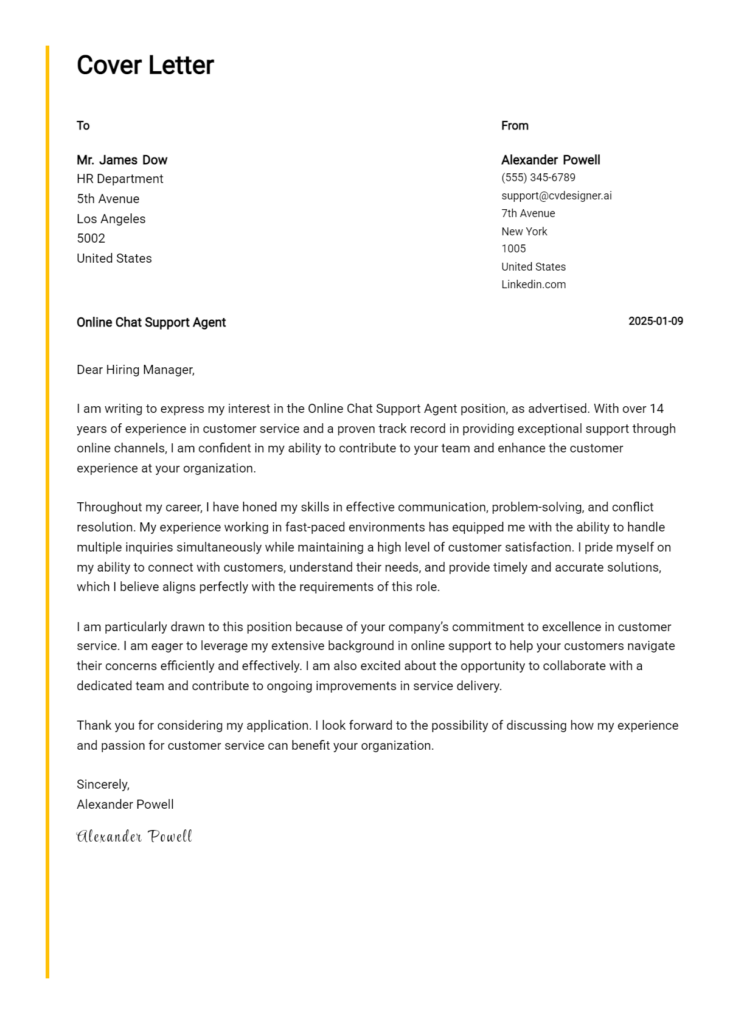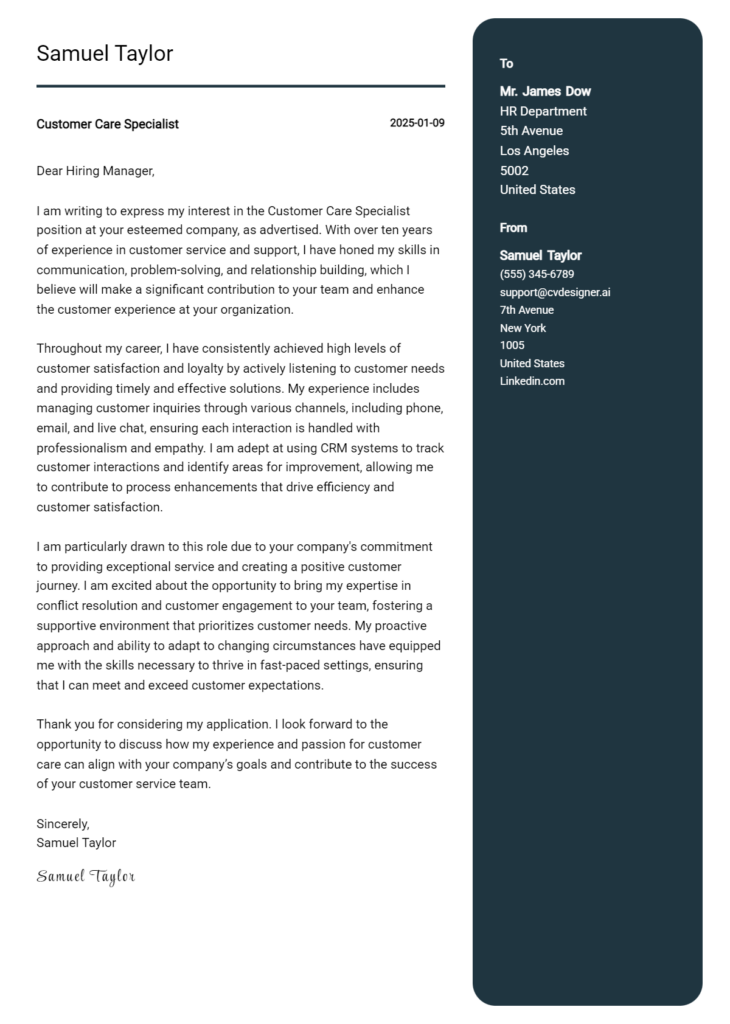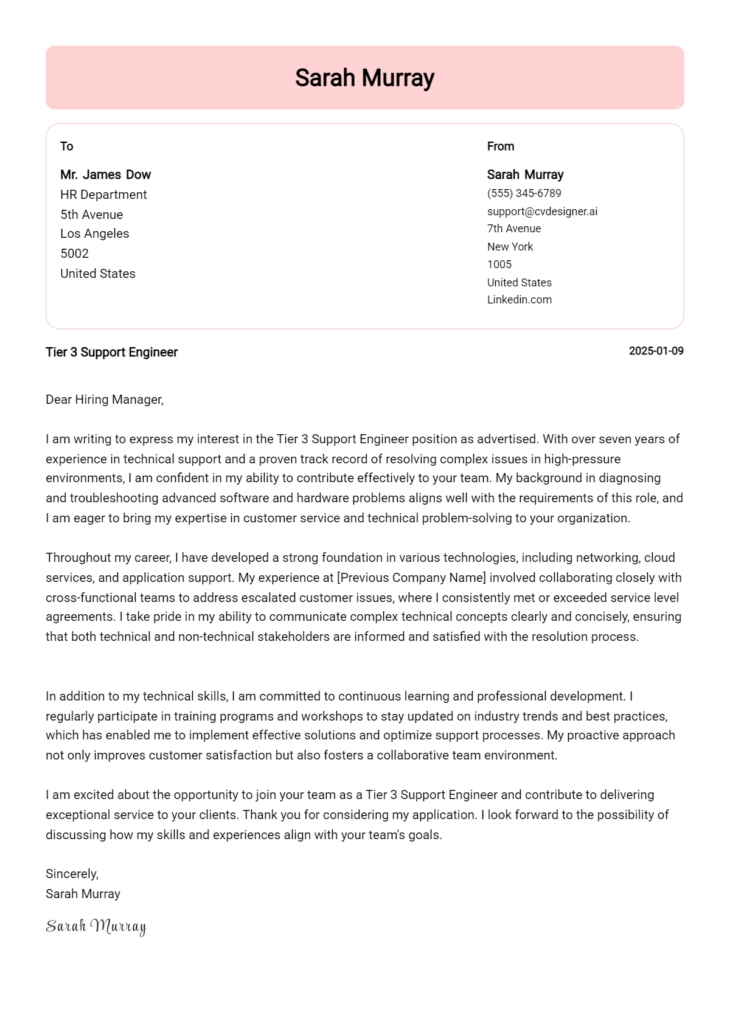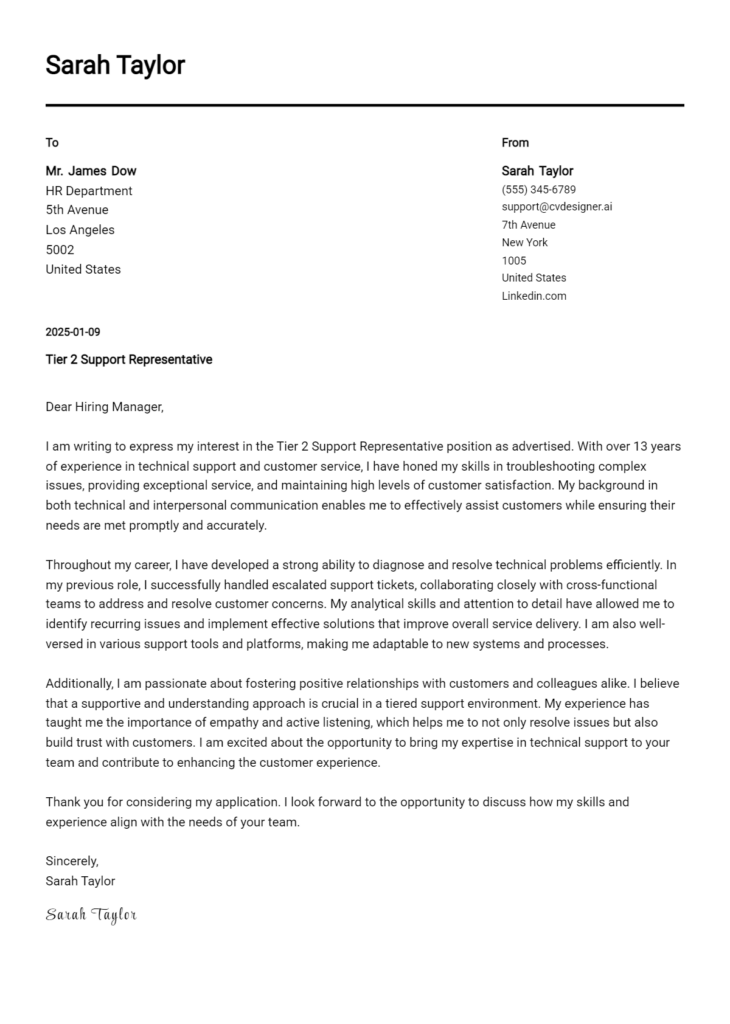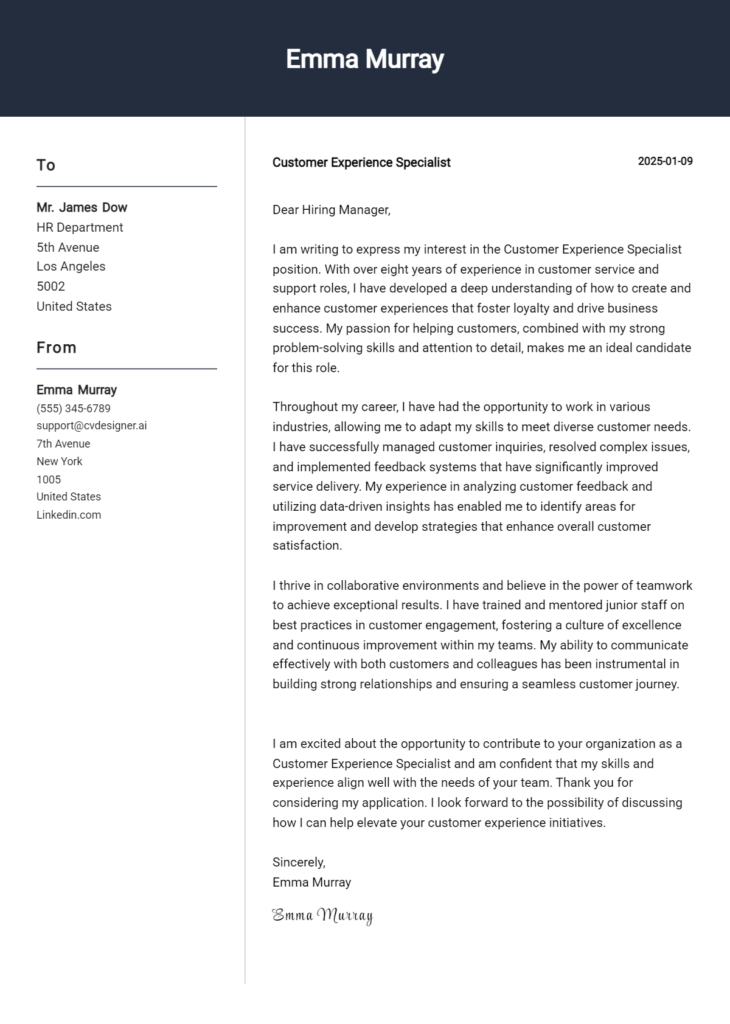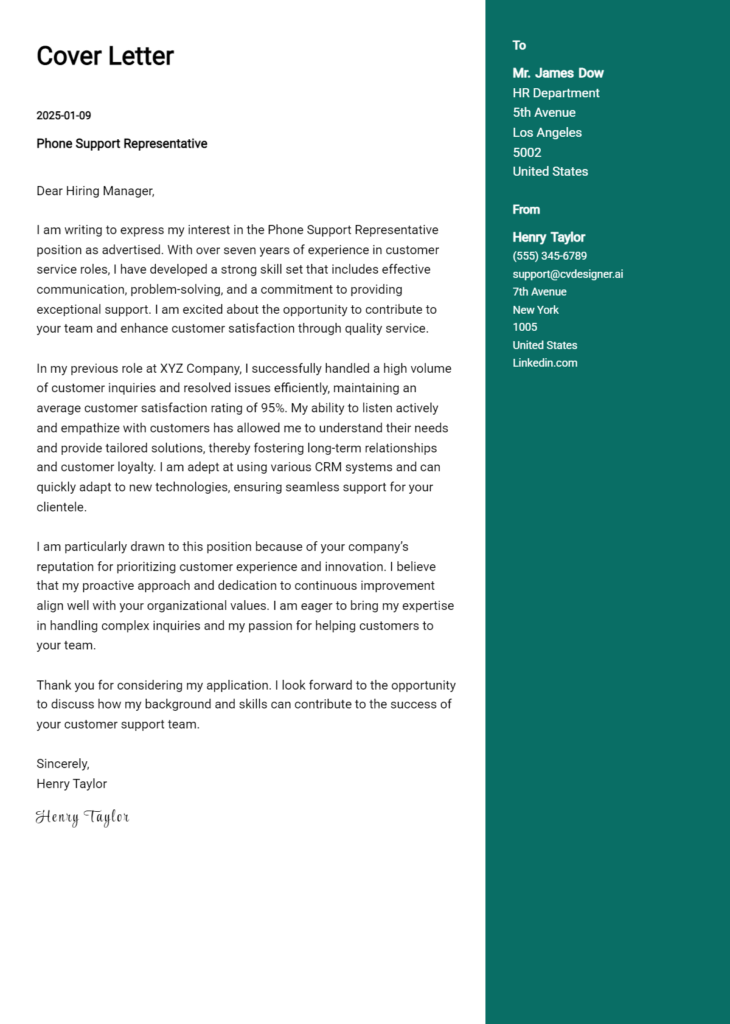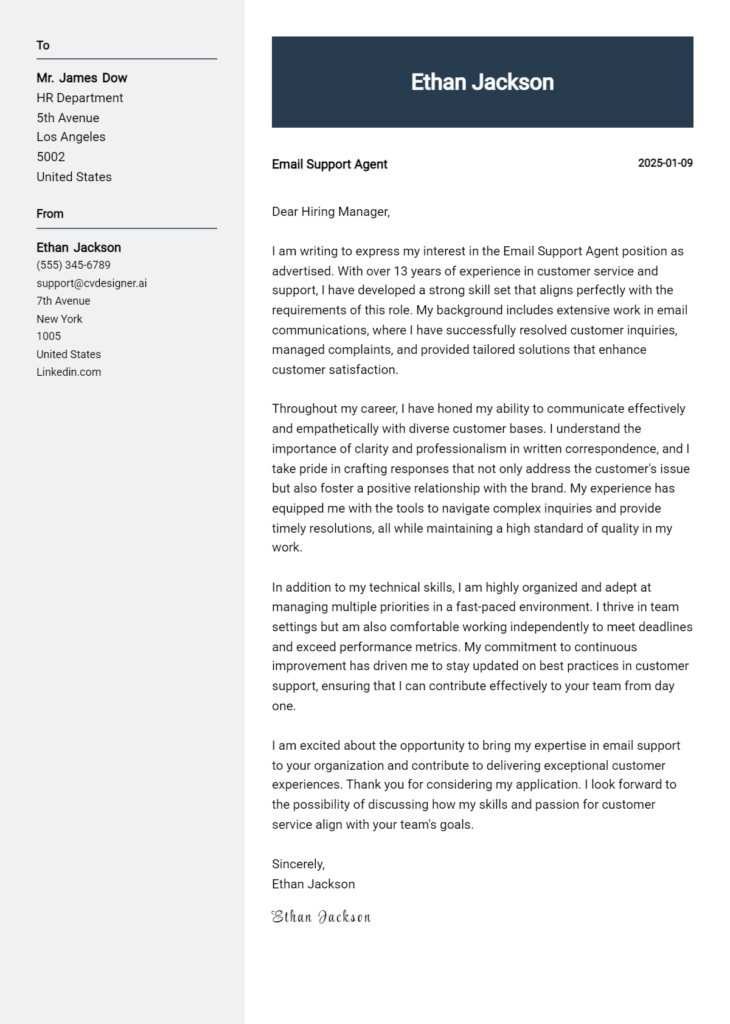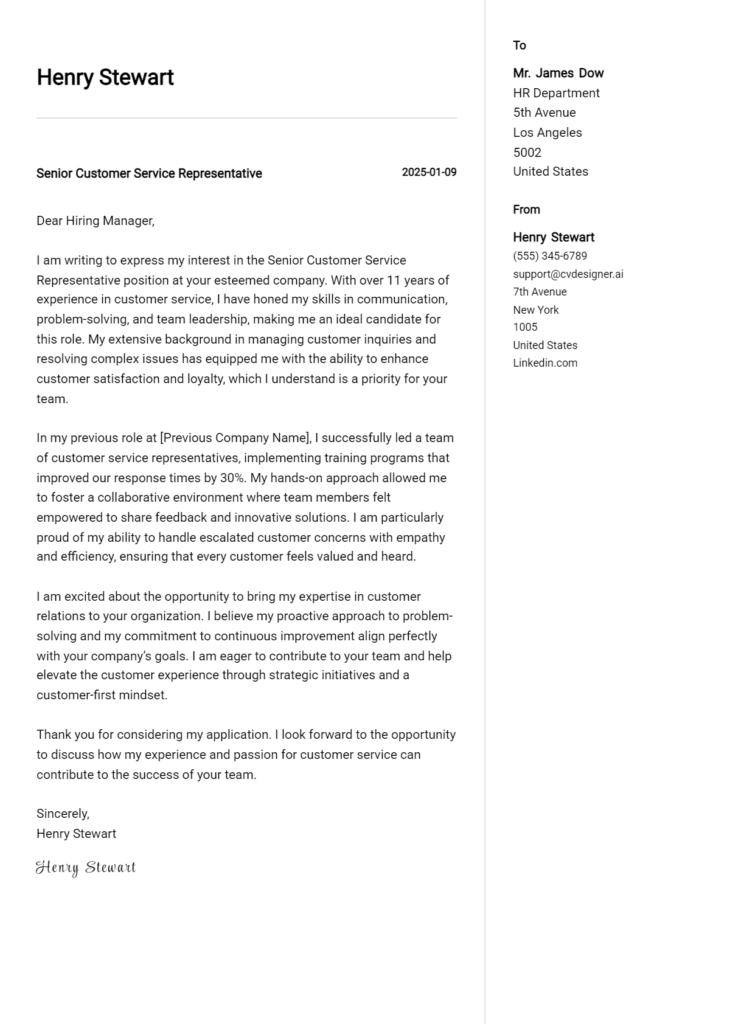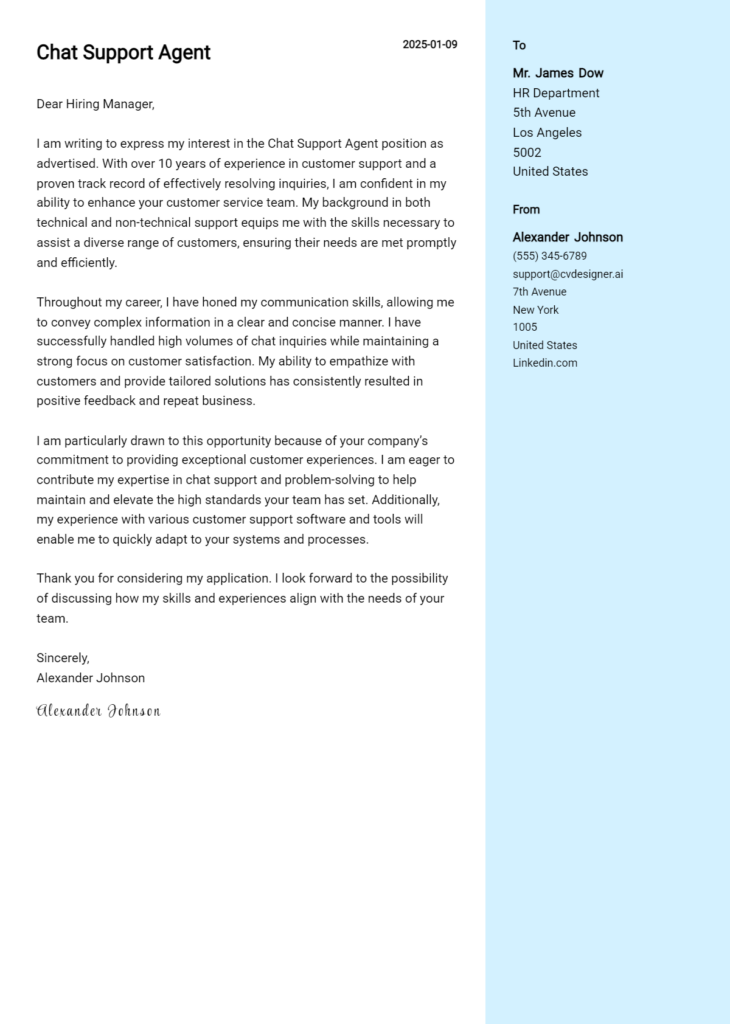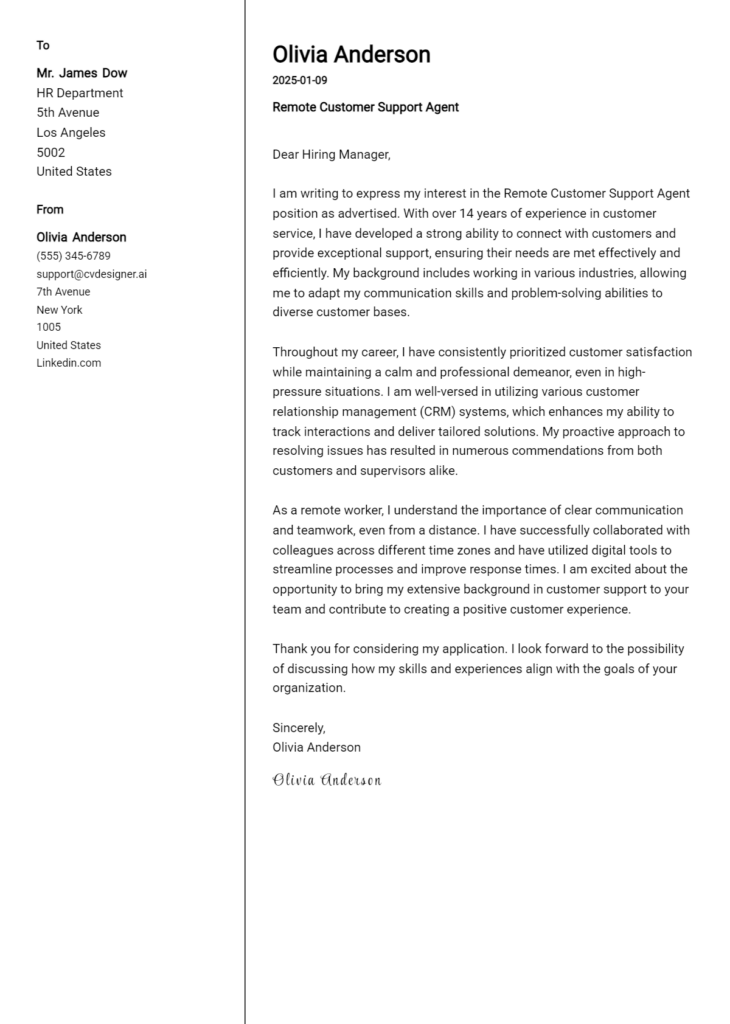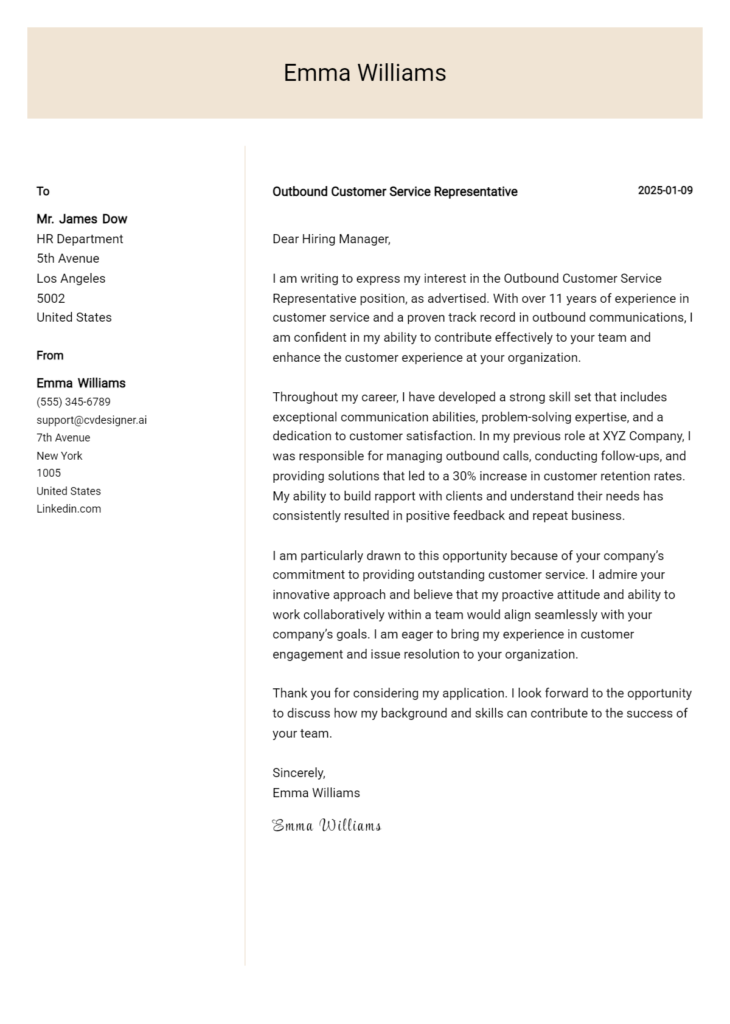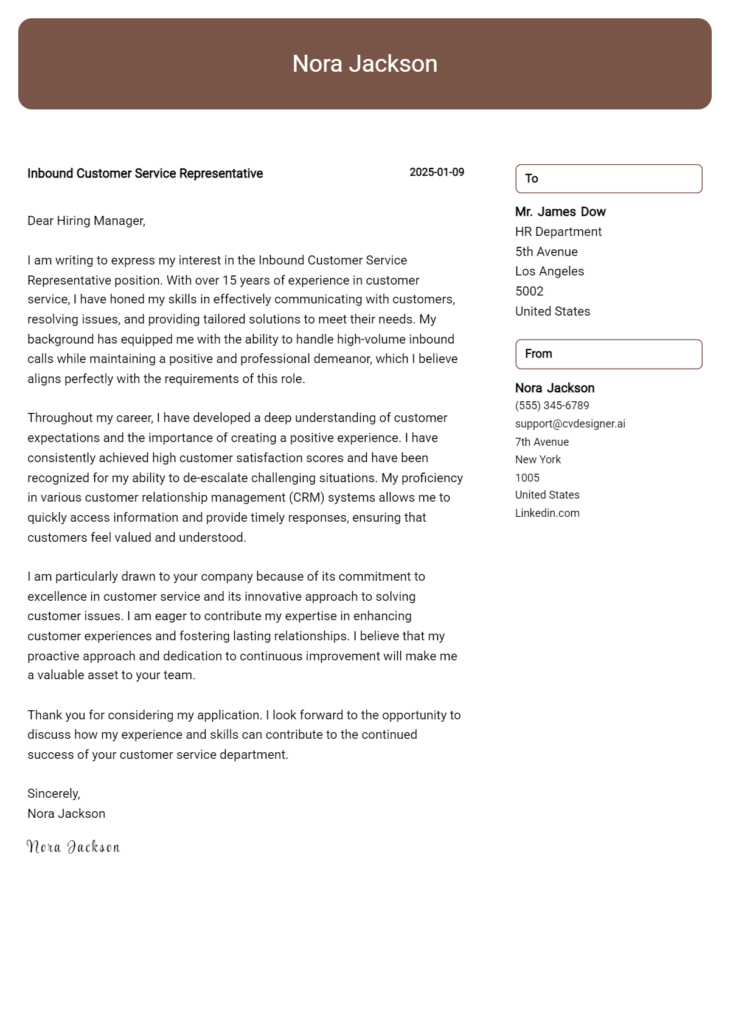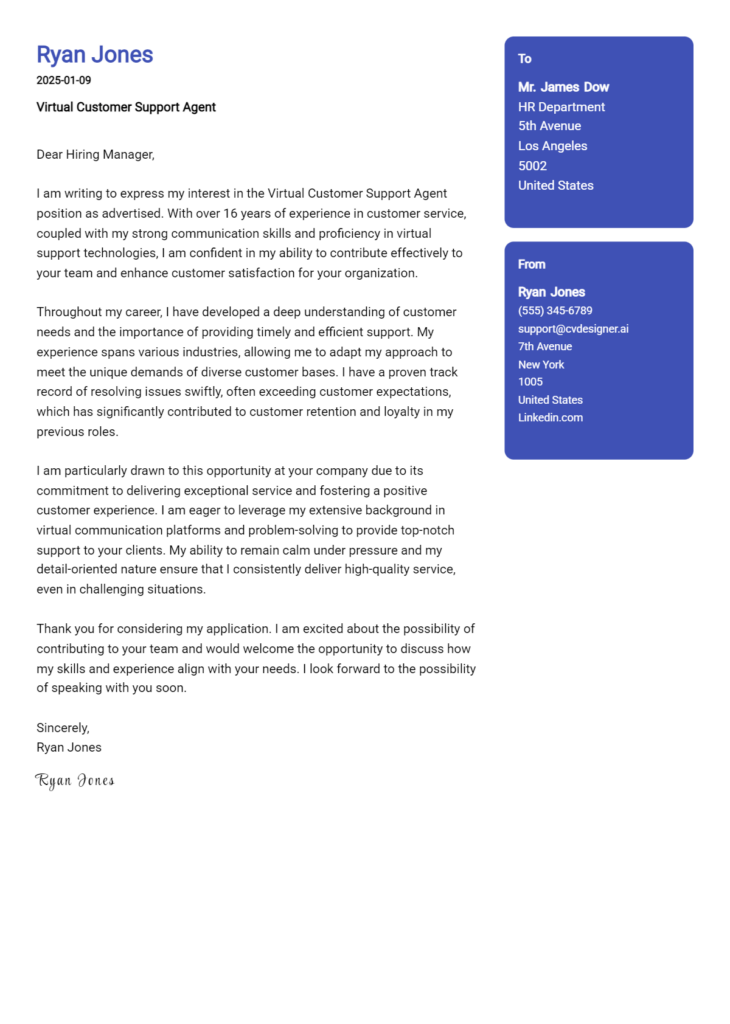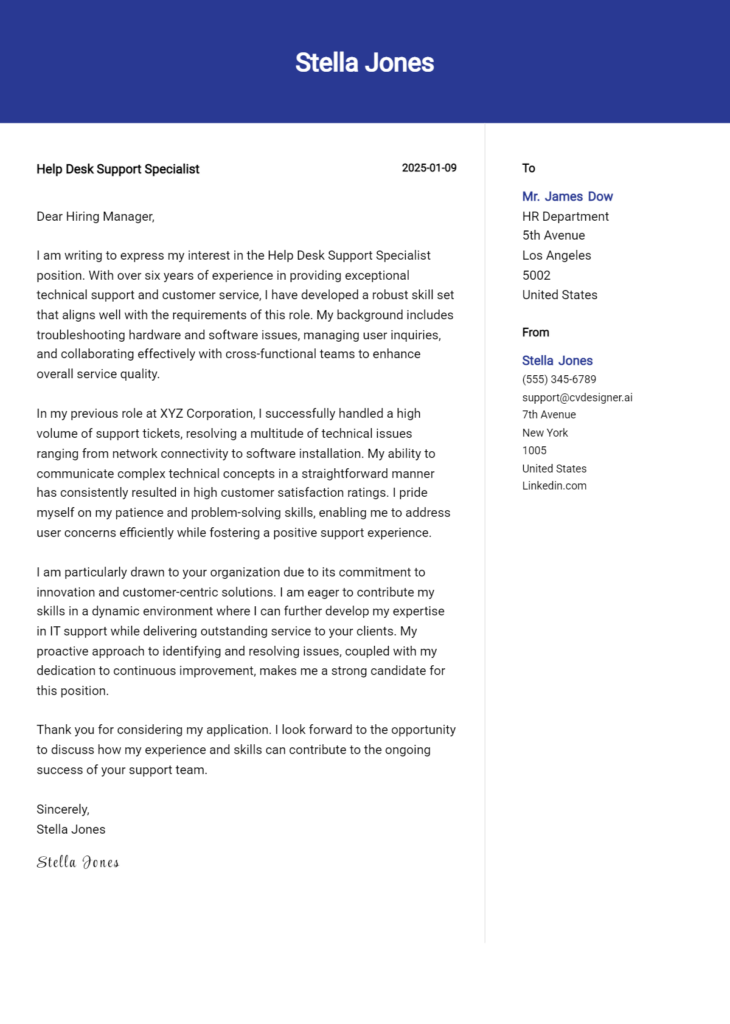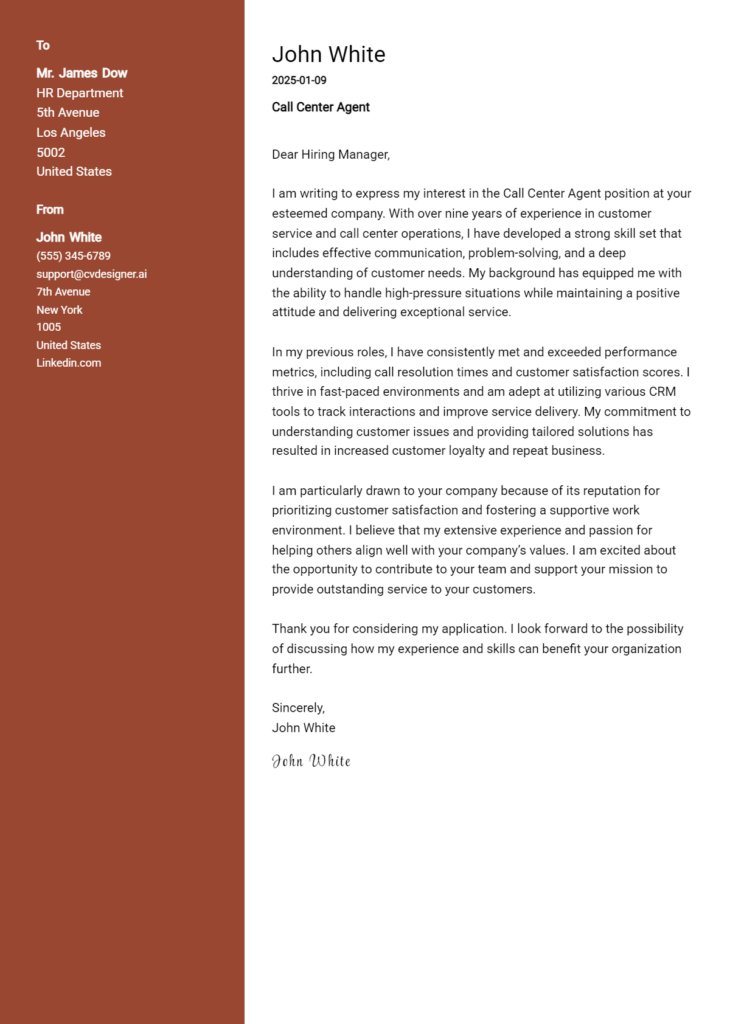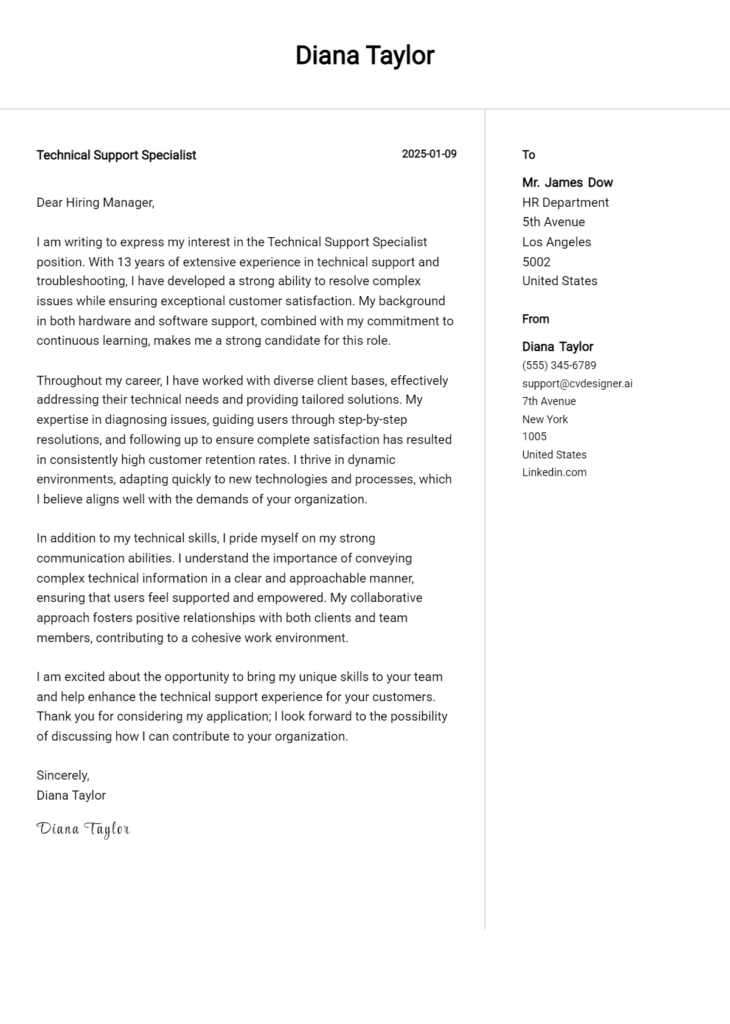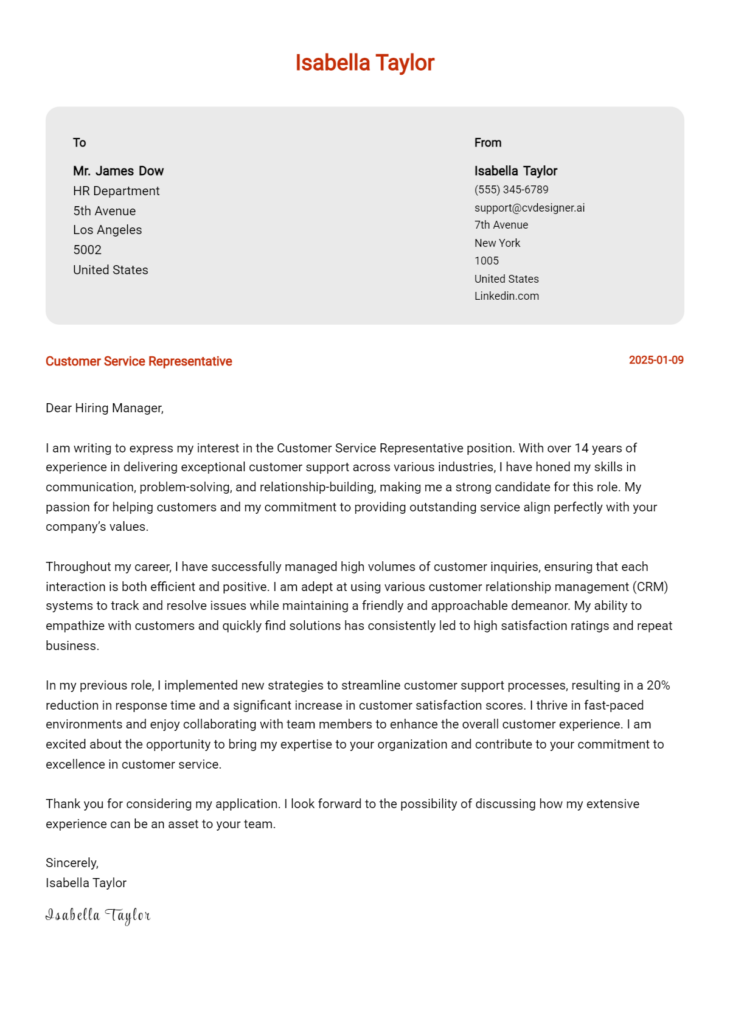It Support Specialist Cover Letter Examples
Explore additional It Support Specialist cover letter samples and guides and see what works for your level of experience or role.
How to Format an IT Support Specialist Cover Letter
Crafting a well-structured cover letter is essential for an IT Support Specialist, as it not only showcases your technical skills but also demonstrates your problem-solving abilities and customer service orientation. A well-formatted cover letter serves as your first impression with potential employers, reflecting your professionalism and attention to detail—qualities that are vital in the IT field. By organizing your cover letter effectively, you can capture the hiring manager's attention while clearly conveying your qualifications and enthusiasm for the role.
In this guide, we will outline the necessary components of a professional cover letter tailored for IT Support Specialists, including:
- Cover Letter Header
- Cover Letter Greeting
- Cover Letter Introduction
- Cover Letter Body
- Cover Letter Closing
Each section is crucial for effectively presenting your experience and making a strong case for why you would be a valuable addition to the team. Let’s delve into each part to help you create a standout cover letter.
Importance of the Cover Letter Header for an IT Support Specialist
The cover letter header serves as the first impression of your professionalism and organizational skills. For an IT Support Specialist, clarity in the header is crucial as it sets the tone for the rest of the application. A strong header includes your contact information, the date, and the recipient's details, ensuring that all necessary information is easily accessible. This not only reflects your attention to detail but also facilitates smooth communication. A well-structured header can make a significant difference in how your application is perceived, showcasing your readiness for a role that often involves clear and effective communication.
Strong Example
John Doe 123 Tech Lane Cityville, ST 12345 johndoe@email.com (123) 456-7890 October 1, 2023 Hiring Manager XYZ Company 456 Support Ave Cityville, ST 12345
Weak Example
johndoe@email.com 10/1/23 XYZ Company
The Importance of the Cover Letter Greeting
The greeting of your cover letter plays a crucial role in setting the tone for the rest of your application. A well-crafted greeting not only demonstrates professionalism but also personalizes your communication by directly addressing the hiring manager. This small yet significant detail can make a big difference in how your application is perceived. To avoid sounding generic, take the time to research the recipient's name and title. A tailored greeting shows that you have put effort into your application and are genuinely interested in the position.
When crafting your greeting, steer clear of vague openings that could apply to any job application. Instead, aim for specificity that reflects your enthusiasm for the IT Support Specialist role.
Strong Greeting Example
Dear Ms. Johnson,
Weak Greeting Example
To Whom It May Concern,
Cover Letter Introduction for IT Support Specialist
A well-crafted cover letter introduction is crucial for an IT Support Specialist as it serves as the first impression to the hiring manager. This section should not only capture attention but also convey genuine interest in the position. A strong introduction highlights relevant skills and achievements that align with the job requirements, setting the tone for the rest of the letter. Conversely, a weak introduction can fail to engage the reader, missing the opportunity to showcase the candidate's qualifications. Below are examples of both strong and weak introductions for an IT Support Specialist cover letter.
Strong Example
Dear [Hiring Manager's Name], I am excited to apply for the IT Support Specialist position at [Company Name] as advertised on [Job Board]. With over five years of hands-on experience in managing technical support operations and a proven track record of resolving complex IT issues efficiently, I am confident in my ability to contribute effectively to your team. My strong communication skills and commitment to customer satisfaction have consistently led to improved service delivery and positive feedback from clients, making me an ideal candidate for this role.
Weak Example
To Whom It May Concern, I am writing to apply for the IT Support Specialist position. I think I am a good fit for this job because I have worked in IT support before. I am familiar with computers and have some experience troubleshooting issues. I hope you will consider my application.
Purpose of the Cover Letter Body for an IT Support Specialist
The body of a cover letter for an IT Support Specialist plays a crucial role in articulating the candidate's technical skills, relevant experiences, and overall value to the prospective employer. This section should highlight specific projects or accomplishments that demonstrate the candidate's ability to troubleshoot issues, enhance system functionalities, and provide excellent customer service. By effectively showcasing these elements, the candidate can differentiate themselves from others in the field and illustrate how their contributions can align with the company's goals.
Strong Example
Dear Hiring Manager, I am excited to apply for the IT Support Specialist position at XYZ Company. In my previous role at ABC Corp, I successfully led a project to implement a new ticketing system that improved our response time by 50%. I also provided training sessions for over 30 employees, significantly reducing the volume of repetitive inquiries and enhancing overall productivity. My hands-on experience with troubleshooting hardware and software issues, combined with my dedication to customer satisfaction, positions me to make a meaningful impact at XYZ Company. I am particularly drawn to your commitment to innovation and would love the opportunity to contribute to your team. Sincerely, [Your Name]
Weak Example
Dear Hiring Manager, I want to apply for the IT Support Specialist job. I have worked in IT for a few years and can solve many problems. I think I would be a good fit for your company because I like technology. I have helped people with their computers before and can answer questions. I hope you consider my application. Best, [Your Name]
Importance of the Cover Letter Closing for an IT Support Specialist
The closing paragraph of a cover letter is crucial for leaving a lasting impression on the hiring manager. It serves as a final opportunity to summarize your qualifications, reiterate your enthusiasm for the role, and encourage the next steps, such as reviewing your resume or scheduling an interview. A strong closing can reinforce your fit for the position and motivate the employer to take action, while a weak closing may leave them unimpressed or unsure of your interest.
Strong Example
Thank you for considering my application for the IT Support Specialist position. With my extensive experience in troubleshooting complex technical issues and my commitment to delivering exceptional customer service, I am excited about the opportunity to contribute to your team. I look forward to the possibility of discussing my qualifications further and am eager to provide additional insights into how I can help enhance your IT support operations. Please feel free to contact me to schedule an interview at your convenience.
Weak Example
I hope you think about my application. I have some experience in IT support, and I would like to work for your company. Maybe we can talk if you want.
Crafting an effective cover letter is crucial for candidates applying for the role of an IT Support Specialist. A well-structured cover letter not only highlights your technical skills and problem-solving abilities but also demonstrates your knowledge of the Software Development Life Cycle (SDLC), your capacity for teamwork, and your passion for continuous learning. Here are some tips to help you create a compelling cover letter that stands out to potential employers.
Tips for Writing an Effective Cover Letter for IT Support Specialist
Showcase Your Technical Skills
Clearly outline your technical proficiency, including specific software, hardware, and troubleshooting tools you are experienced with. Use concrete examples to demonstrate how your skills have been applied in past roles. This will not only demonstrate your capabilities but also provide assurance to employers about your ability to handle technical challenges.Highlight Problem-Solving Abilities
Employers value candidates who can effectively resolve issues. Share anecdotes that illustrate your problem-solving process, such as how you diagnosed a technical issue or implemented a solution that improved system performance. This will help convey your analytical thinking and resourcefulness.Demonstrate Knowledge of SDLC
Understanding the Software Development Life Cycle is essential for an IT Support Specialist. Mention any experience you have with different phases of SDLC, such as requirements gathering, testing, or deployment. This shows that you not only understand the support aspect but also how it fits into the broader context of software development.Emphasize Teamwork and Communication Skills
IT support often requires collaboration with other team members and departments. Highlight experiences where you've worked in a team setting, emphasizing your communication skills and ability to work under pressure. This will reassure employers of your ability to function well in a collaborative environment.Convey a Passion for Continuous Learning
The tech industry is constantly evolving, and demonstrating your commitment to ongoing education is vital. Mention any certifications, training programs, or workshops you’ve completed recently. This shows that you are proactive in keeping your skills up-to-date and are eager to adapt to new technologies.
For additional resources, consider using cover letter templates or a cover letter builder to streamline the writing process and create a polished final product.
Common Mistakes to Avoid in an IT Support Specialist Cover Letter
Crafting a compelling cover letter is essential for standing out as an IT Support Specialist. Avoiding common pitfalls can significantly enhance your chances of making a positive impression. Here are some frequent mistakes to watch for:
- Generic Content: Using a one-size-fits-all template can make your letter feel impersonal. Tailor your cover letter to the specific job and company by highlighting relevant experiences and skills.
- Lack of Specificity: Failing to provide concrete examples of your skills can weaken your application. Instead, include specific instances where you've successfully resolved IT issues or improved support processes.
- Neglecting Formatting: A cluttered or unprofessional format can detract from your message. Follow a clean and professional cover letter format to ensure readability and organization.
- Spelling and Grammar Errors: Typos can convey carelessness. Always proofread your cover letter or use tools to catch mistakes before sending.
- Focusing Solely on Responsibilities: Listing past job duties without showcasing achievements can make your letter dull. Emphasize how you added value in previous roles.
- Overly Lengthy Letters: A cover letter should be concise and to the point. Aim for a one-page letter that succinctly conveys your qualifications and enthusiasm.
- Ignoring Company Culture: Not researching the company’s culture can lead to a mismatch in tone. Demonstrating an understanding of the company’s values in your letter can help you resonate with potential employers.
For inspiration, check out various cover letter examples to see how successful candidates present their qualifications effectively.
Cover Letter FAQs for IT Support Specialist
What should I include in my cover letter for an IT Support Specialist position?
When crafting your cover letter for an IT Support Specialist role, include your relevant technical skills, certifications, and experience in troubleshooting hardware and software issues. Highlight your ability to communicate effectively with both technical and non-technical users. Mention specific technologies or tools you've used, such as ticketing systems or remote support software. Additionally, emphasize your problem-solving skills and any experience in providing training or support to end-users. Tailor your cover letter to the job description by incorporating keywords that match the skills and qualifications sought by the employer.
How can I make my cover letter stand out?
To make your cover letter stand out, focus on showcasing your unique experiences and accomplishments. Use specific examples that demonstrate your expertise in resolving technical issues, improving support processes, or enhancing user satisfaction. Personalize your cover letter by addressing it to the hiring manager and mentioning the company’s values or projects that resonate with you. Additionally, consider including metrics that showcase your success, such as reducing ticket resolution times or improving customer satisfaction ratings. A well-structured, error-free letter with a professional tone will also help you make a strong impression.
Should I address my cover letter to a specific person?
Yes, addressing your cover letter to a specific person is highly recommended. It demonstrates your interest in the position and shows that you’ve done your research about the company. If the job listing does not provide a name, you can look for it on the company's website or LinkedIn. If you cannot find a specific name, consider using a general greeting like "Dear Hiring Manager." However, using a name, such as "Dear [Hiring Manager's Name]," can personalize your application and may increase your chances of getting noticed by the decision-makers.
How long should my cover letter be for an IT Support Specialist position?
Your cover letter should ideally be one page long, consisting of 3-4 paragraphs. Aim for about 250-400 words. This length allows you to provide a concise overview of your qualifications without overwhelming the reader. Start with a strong introduction that captures the hiring manager’s attention, followed by a body that outlines your relevant experience and skills. Conclude with a compelling closing statement that reinforces your interest in the role and invites further discussion. Keeping it concise ensures that hiring managers can quickly grasp your key points while still being engaged by your narrative.
Build your Cover Letter in minutes
Use an AI-powered cover letter builder and have your letter done in 5 minutes. Just select your template and our software will guide you through the process.

